- Home
- Maisey Yates
Confessions from the Quilting Circle Page 3
Confessions from the Quilting Circle Read online
Page 3
“Sure,” he said, his focus on his phone.
She busied herself putting the groceries in the fridge and the pantry, her mind blank for the first time all day. It had been filled with everything she’d had to do and this was the first time she’d slowed down long enough to have her own thoughts. If she wanted to.
But she was too tired for thinking today.
When she exited the walk-in pantry, her husband had put his phone away.
He looked at her and smiled. Something inside of her lit up.
He was just as handsome as the day she’d met him. They’d been young. Just finishing up college. He wasn’t from Oregon, but he had always wanted to go there. It so happened Medford had a good couple of hospitals, and there was ample opportunity for a new surgeon who was young and full of enthusiasm.
So she had moved back home. And he had moved with her.
“How is your mom?” he asked.
“She’s good. I mean, fine. You know how my mom is. She’s a big believer in sucking it up and soldiering on. She doesn’t talk about her feelings. But I think Gram’s death affected her a little bit more deeply than she expected it to. Considering they weren’t exactly that close.”
“Your gram always came to Sunday dinner, it’s not like they were strangers.”
“No, no I know.” But Avery also knew they were distant from each other. Gram was so easy with her, and with the kids. But a tightness came over her face when Mary entered the room.
And with her mom, who could even tell?
Avery sighed, sadness settling over her. This Sunday would be a dinner-at-Mom’s Sunday. They’d had one other since Gram’s death and Avery missed her sweet presence so much. Missed her giving the kids craft projects to do. Missed her rocking in that ratty old recliner her parents had had in the living room for at least thirty years while she ate her dessert.
Pie had been her favorite. Pumpkin.
Avery had learned her recipe years ago, and she’d made it for her extra in the months leading up to her death because she’d felt her slipping away and...
And there had been nothing she could do about it. Of course not. Gram was in her nineties and it was how life was. But Avery resented it.
Gram had been her link back to such a beautiful time in her life. To moments when she’d felt close with her sisters. When her biggest worry had been getting through snapping enough peas for dinner so she could go sit in the sunshine with a book or with her cross-stitch.
When she’d dreamed of going to college and maybe going somewhere new after. When she’d dreamed of being an actress or a writer. Something fabulous and exciting that had just felt so possible in the warmth of a sunbeam in a grandmother’s tiny backyard.
“What all did you do today?” David asked, his voice filled with concern.
“Had a meeting at school. I went to coffee with Alyssa to talk about organizing speakers for the Writer’s Festival for next school year. I scrounged up some dinner for you guys, and got some food together to take to mom and Avery and Lark. Visited with them for a while. Grocery store. Then home.” She paused for a moment. “What about you?”
“Surgery all day.”
“Did it go well?”
He shrugged. “I’m a doctor. I’m not really seeing people at their best. I figure it goes well every time. Without help, there’d be no hope, right?”
She wondered if that meant someone had died, and he didn’t want to talk about it. It was hard to tell with him. It was why she always hesitated to ask about his day.
“I brought you flowers,” he said. “I know it’s been a rough few weeks.”
She blinked. “You did?”
“Yeah,” he said.
He moved to the side, and on the granite countertop, she saw a crystal vase, filled with red roses. “They’re beautiful.”
“You know I love you,” he said, wrapping his arms around her then, and bringing her in for a kiss. A deep sort of validation filled her. He was such a handsome, accomplished man. And he’d given her all this.
And flowers.
“I know,” she said. “I love you too.”
“You do so much. For me, for the kids.”
“Thank you,” she said, a smile curving her lips.
“Did you guys decide what you’re going to do with the houses?”
“Well, we’re going with the vacation rental for The Dowell House. I think it’s the best idea.”
“Sure,” he said. “A good way to bring in some revenue from something that would otherwise just sit there.”
“Yeah. Lark had an idea for The Miner’s House. I... I don’t know anything about the kind of business she’s proposing, but I figured there was no harm in her trying something.”
“Does she have a business plan?”
“I asked that too. Apparently she does.”
“No offense to your sister... But she’s not the most responsible.”
Avery wanted to defend Lark. It was only natural. They were sisters, after all. But David really didn’t understand her sisters. Hannah, at least, had a real, tangible job. But no matter how many times she showed David the illustrations in books that were done by Lark, he still seemed to think she drew pictures for a living, and that it was so sporadic there was absolutely nothing dependable about it.
But Lark was Lark. The baby. She was a giant emotional response, all heart and no planning. And she never got in trouble for it. Life never seemed to throw her a consequence of any kind. No, she wasn’t the overachiever Hannah was, but managed to coast and always end up in a fine enough place.
It had been so annoying when they were kids.
When Avery was younger if she would have flipped a fit the way Lark did, she’d have gotten grounded for life.
“So she’s not drawing anymore?”
“She said she was on a break.”
“Really.”
“She didn’t offer any more information than that. Anyway, she wants to open something called a Craft Café? She said she’s going to invest all of her own money.”
She could practically hear him rolling his eyes. “Well, see that that’s it. Because you know, with ventures like that, someone might think they have all their own money, but if she gets in too deep, you know she’s going to ask us.”
“I know,” she said. But she wasn’t sure she actually agreed. Still, David believed it, and it was easier than having an argument.
“We’d be better off selling it. Her turning it into another rental.”
“Just give her six months. She wants to stay. She wants to stay, and I can tell my mom is desperate for her to.”
“And then she’ll leave. Just like your grandma did. And that will break your mother’s heart.”
Avery sighed heavily. David was probably right. Lark didn’t have a great track record when it came to staying in one place. “She’ll have me. She always does.”
“Yes. It always falls to you to be there for your mom when your sisters don’t bother to come home for things. You’re the one that takes care of your parents and goes to every holiday, and now if Lark ends up saying she’s staying and then doesn’t, you know you’ll have to fix it. She doesn’t say it bothers her, but you know it does.”
Because however her mom acted, things did hurt her. And Avery could tell when they did. “It’s my family...”
“We’re your family,” he said. “You have a family. Your sisters don’t have husbands and children.”
“Hannah plays in a symphony orchestra. One of the best in the country.”
“That’s not the same as the kind of obligations you have.”
She looked at her husband of seventeen years. “No,” she agreed. “It’s not.”
“She’s married to her job.”
She nodded silently. “And I can’t really imagine that Lark will ever settl
e down.”
“Too much of a project,” David said.
“Hey. She is my sister.”
“Yeah, I know. My sister is a project too.”
She looked at the flowers and sighed. “Everything will be fine. She’ll try her business, and whatever happens will happen. I promise it’s not going to distract me too much.” He kissed her again, and she pushed everything out of her mind except that. Because she did love to kiss him. Still.
She might not be able to go back in time and sit in that simple sunbeam with Gram, but her life was pretty good.
Hannah
It didn’t matter how many years it had been since she’d moved away, and how many times she’d come back during that time, it always felt weird to walk into her childhood home feeling more like a guest than an inhabitant. Stranger still dragging her suitcases into the childhood room she had shared with Lark.
That shared space had caused so many fights.
I’m drawing, Hannah! Stop playing!
She could practically hear Lark’s complaints echo off the walls all these years later. Lark had never understood Hannah’s obsession with the violin, and had often made it worse by trying to connect their two passions.
We’re both creative!
Of course, Lark didn’t have to spend hours doing scales to make sure she was precise. Perfect. Lark didn’t understand that music wasn’t a free-form scribble. You had to build a foundation on perfection.
And her mother had always sided with Lark.
She’s tired, Hannah, you have to stop now. It’s late.
Of course, Lark was the baby. And the baby always got what she wanted.
So Hannah had gone out wrapped in a winter coat and rage and played angrily on the back porch until their neighbor had yelled at her out of his living room window.
At least they didn’t have to share now. Lark was staying in The Dowell House already, but Hannah had told her mother she’d stay at the house before she’d known that The Dowell House was in habitable condition—something she’d been concerned about since no one had lived there since her grandfather’s death about a decade ago.
She’d done a quick walk-through after the funeral, and she’d ordered beds and other furniture, purchased with money left by Gram, and it would all be here later in the week, and would round out the extra bedrooms in the house that were currently empty.
Hannah had promised her dad she’d stay the first night, but then she’d be moving into The Dowell House along with her sister.
Her and Lark’s old room still had two twin beds, shoved against opposite sides of the room. Though, Lark’s white comforter with rainbow brushstrokes and Hannah’s blue plaid with yellow sunflowers had been replaced by quilts. Hannah sat down on the edge of what had been her bed and touched the quilt.
She could feel Gram’s warmth in the stitches. Could remember when she’d first put a fabric square and a needle in Hannah’s hands.
Hannah hadn’t been very nice about it, or very appreciative.
I have to practice violin, Gram. I don’t have time to learn to quilt.
Well, I have a quilt that needs finishing, and I have five pounds of potatoes that need peeling. So, pick your poison.
Hannah had chosen the quilt.
She had learned to knit that same summer. In the intervening years she hadn’t picked up a craft once. It was all so domestic. And she was committed to her music. She didn’t need fractured focus. When she wasn’t practicing her music, she was networking, going out and making the most of living in Boston.
If she felt like bringing a man home, it was easy enough to meet one that she never even had to see again.
The joys of the city.
But she didn’t sit home making anything but music.
Even when she came to visit for the holidays, Gram had tried to get her to pick up a needle and thread. She remembered last year at Christmas they’d wound up crammed into the living room at her parents’ house, Gram sitting in a rocker with a TV tray in front of her. A slice of pie on a plate, and a needlepoint sampler next to that.
Avery and her kids had sat dutifully on the floor doing versions of the same thing, while Lark had sat next to them, knitting.
Hannah had gone into the kitchen with her mom, dad and David.
She wished she hadn’t now.
It was the last time she’d seen Gram.
I don’t know why you seem to think you only need to be good at one thing. If you have the capacity to learn how to create many things, music, hats, and quilts, why wouldn’t you?
That was what Gram had asked her when she complained about learning to knit.
She understood what her grandmother had wanted. But she had to be single-minded. She wasn’t just a casual musician. She breathed it. It wasn’t always a creative outlet, or a joy. It was painful sometimes. Monotonous, because anything you did day in, day out could be.
Greatness required sacrifice, and she’d been willing to make those sacrifices.
Well-rounded was for other people.
“Knock knock.” Her dad said it, rather than actually doing it, because the door to the bedroom was still open. “Good to see you, Hannah Banana.”
“Hi, Dad.” She got up off the bed and went to hug him.
“Do you want to come have a cup of tea? Just finished in the shop.”
“You’re having tea?”
“I’m having a beer.”
“Pfft. I want beer. What are you building?”
“Signposts. I was enlisted to help Patty in this sign making business she started. She does the artwork. You know how she gets. She comes up with an idea and then she goes into it full-bore. She’s been keeping me going hard for weeks.”
“Good thing,” Hannah said. “What else have you been up to?”
“Photography, which is a lot of hiking. Cooking classes.”
“Cooking?”
“If I don’t learn now I won’t learn. Might as well.”
“I guess. Is Mom doing any of it with you?”
“You know how she is. She likes her routine. And if she went to a cooking class and couldn’t figure it out she’d break all the eggs in a temper and storm out.” He laughed when he said it.
Hannah walked out of the bedroom, flipping the light off, the darkness taking her memories along with it. The shag carpet beneath her feet was plush, completely different to the wood floors in her apartment. The linoleum in the kitchen was the same ochre that had been there since she was a child. It was a bit scarred and worn now, but it spoke of home, and she liked it.
The kettle on the stove was already whistling, and her mom was standing there waiting. Then she poured her a generous amount of hot water and plunked a Lipton tea bag into the cup.
Hannah’s British friends in the symphony would recoil in horror. Even more so if she confessed to them that half the time her mother made the water for the tea in the microwave.
The kitchen felt so small now. Every time she came home it surprised her. The cast of the light was yellow, the wood too warm. It was nothing like her big, open apartment with black and chrome and high ceilings that carried her music up and filtered it down all around her so she was consumed with it.
A space all her own.
A space dedicated to what mattered to her.
One where no one ever told her to stop playing.
“I’ll have a beer,” Hannah said, when her mom went to pour a second cup.
Her expression was vaguely disapproving. “You smell like cigarettes.”
“Am I fifteen?”
Her dad turned to her, holding the beer and handing it to her. “Does being over eighteen make you immune to the negative effects of cigarettes?”
“How’s your cholesterol, Dad?” she asked sweetly. “And did you have steak for dinner?”
“It’s
not your job to monitor my health, Hannah Banana.”
“Well, seems fair since you’re doing it to me.”
“And are you seeing anyone?” he asked.
“Saw a man a for a whole night a couple of weeks ago.”
That earned her a gruff grunt.
But a smile tugged at the corner of his mouth. Because as much as she knew he disapproved, even when she was irritating him she knew he enjoyed it. He had raised his daughters to be strong women with their own minds.
Even when those minds weren’t quite the same as his.
And in her mind, marriage was silly. It was for people who wanted houses in neighborhoods like this one. Who wanted kids and who wanted to be normal.
She wanted to be something more than normal.
Her dad took a sip of his beer. “I just hate the idea of you being all alone over there.”
“I have a lot of friends. Playing in a symphony is a whole group thing.”
“It’s not the same as being in love,” he said.
Her dad was a romantic, beneath all his alpha bluster. Hannah had always found that funny because her mom really wasn’t. Joe Ashwood liked to bring his wife flowers just because and Mary appreciated them...but Hannah had a feeling she’d never have asked for something so frivolous.
Hannah appreciated her dad, but she wasn’t like him.
She could remember when she thought love was supposed to be bright and blinding like a summer day. That it was supposed to consume you and keep you up at night. That it was okay if it hurt, or didn’t fit quite right.
That it burned with the ferocity of the rest of her dreams. But she knew better now. That was... It wasn’t anything you could live with.
Not when you wanted something else. Not when you had a big and bright dream to follow.
But even though she’d let that go, being in Bear Creek always reminded her of that kind of summer. That kind of feeling.
It was uncomfortable, but an uncomfortable she accepted as part of coming back. It was why she only did it once a year.
Knowing she was settling in for a couple months was unsettling.
“How’s the fiddling going?” Her dad leaned against the counter and crossed his arms, fixing her with his thousand-yard blue stare that had never failed to strike fear into her heart when she’d been a teenager, contemplating any level of rebellion.

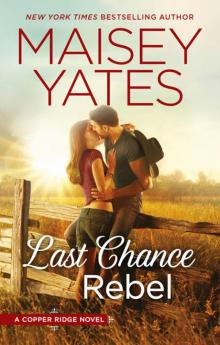 Last Chance Rebel (Copper Ridge #6)
Last Chance Rebel (Copper Ridge #6)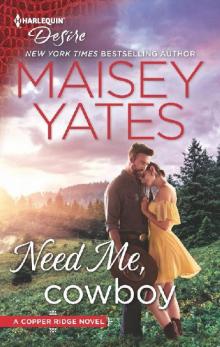 Need Me, Cowboy (Copper Ridge Book 2653)
Need Me, Cowboy (Copper Ridge Book 2653) The Hero of Hope Springs
The Hero of Hope Springs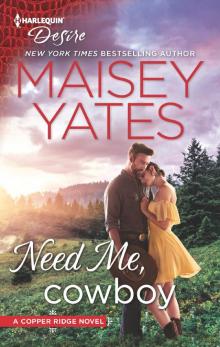 Need Me, Cowboy
Need Me, Cowboy Rancher's Wild Secret & Hold Me, Cowboy (Gold Valley Vineyards Book 1)
Rancher's Wild Secret & Hold Me, Cowboy (Gold Valley Vineyards Book 1) One Night Charmer: Hometown Heartbreaker Bonus (Copper Ridge Novels)
One Night Charmer: Hometown Heartbreaker Bonus (Copper Ridge Novels) Claiming the Rancher's Heir
Claiming the Rancher's Heir Cowboy Christmas Redemption
Cowboy Christmas Redemption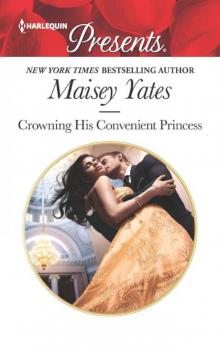 Crowning His Convenient Princess (Once Upon A Seduction... Book 4)
Crowning His Convenient Princess (Once Upon A Seduction... Book 4) His Majesty's Forbidden Temptation (Mills & Boon Modern)
His Majesty's Forbidden Temptation (Mills & Boon Modern)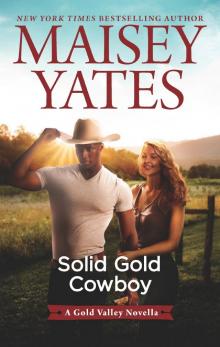 Solid Gold Cowboy
Solid Gold Cowboy His Majesty's Forbidden Temptation
His Majesty's Forbidden Temptation Crowning His Convenient Princess
Crowning His Convenient Princess The Queen's Baby Scandal
The Queen's Baby Scandal Harlequin Desire January 2021--Box Set 1 of 2
Harlequin Desire January 2021--Box Set 1 of 2 Lone Wolf Cowboy
Lone Wolf Cowboy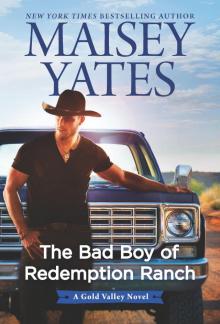 The Bad Boy of Redemption Ranch
The Bad Boy of Redemption Ranch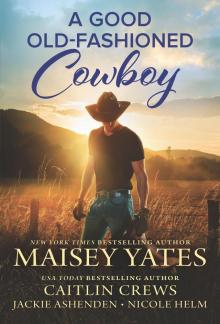 A Good Old-Fashioned Cowboy
A Good Old-Fashioned Cowboy A Bride for the Lost King
A Bride for the Lost King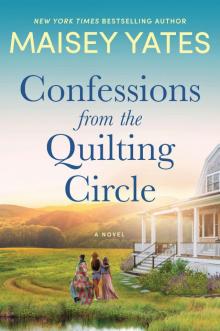 Confessions from the Quilting Circle
Confessions from the Quilting Circle Unbroken Cowboy
Unbroken Cowboy Rancher's Christmas Storm--A Western snowbound romance
Rancher's Christmas Storm--A Western snowbound romance Cowboy to the Core
Cowboy to the Core His Pregnant Princess
His Pregnant Princess Forged in the Desert Heat
Forged in the Desert Heat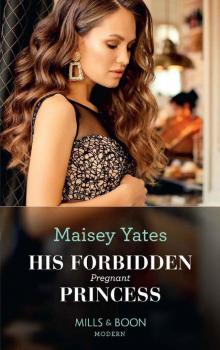 His Forbidden Pregnant Princess (Mills & Boon Modern) (Conveniently Wed!, Book 21)
His Forbidden Pregnant Princess (Mills & Boon Modern) (Conveniently Wed!, Book 21)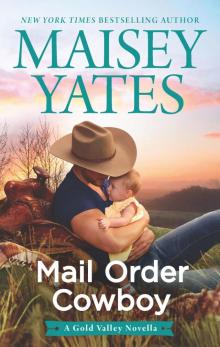 Mail Order Cowboy
Mail Order Cowboy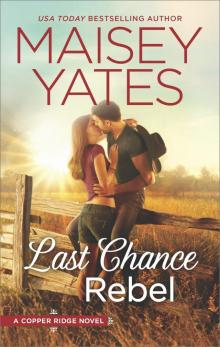 Last Chance Rebel
Last Chance Rebel The Rancher's Wager
The Rancher's Wager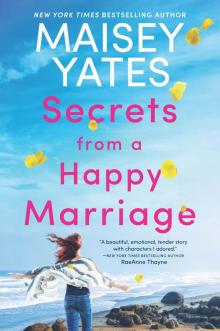 Secrets from a Happy Marriage
Secrets from a Happy Marriage The Last Christmas Cowboy
The Last Christmas Cowboy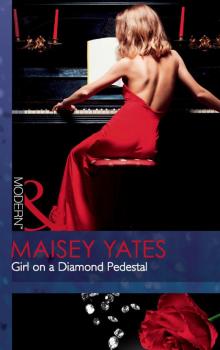 Girl on a Diamond Pedestal
Girl on a Diamond Pedestal Her Little White Lie
Her Little White Lie The Couple who Fooled the World
The Couple who Fooled the World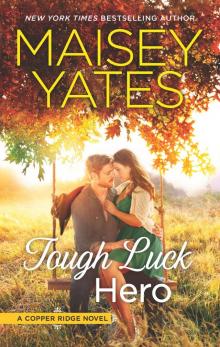 Tough Luck Hero
Tough Luck Hero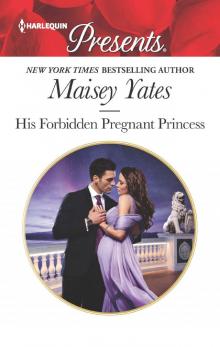 His Forbidden Pregnant Princess
His Forbidden Pregnant Princess TO DEFY A SHEIKH
TO DEFY A SHEIKH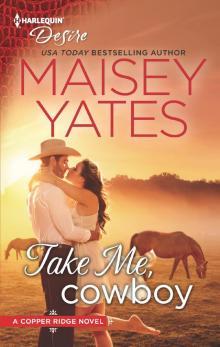 Take Me, Cowboy
Take Me, Cowboy The Inherited Bride
The Inherited Bride Marriage Made on Paper
Marriage Made on Paper His Virgin Acquisition
His Virgin Acquisition One Night to Risk It All
One Night to Risk It All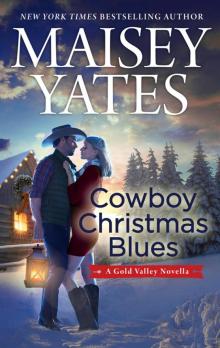 Cowboy Christmas Blues
Cowboy Christmas Blues The Billionaire's Intern: Logan Black (Forbidden Book 1)
The Billionaire's Intern: Logan Black (Forbidden Book 1) Strip You Bare
Strip You Bare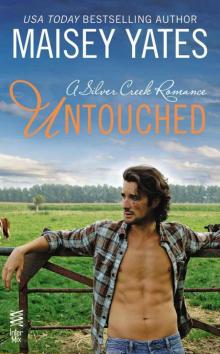 Untouched
Untouched The Petrov Proposal
The Petrov Proposal Sheikh's Desert Duty
Sheikh's Desert Duty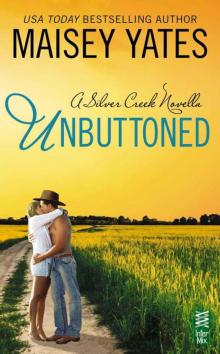 Unbuttoned
Unbuttoned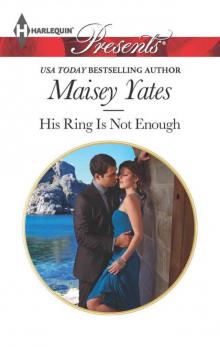 His Ring Is Not Enough
His Ring Is Not Enough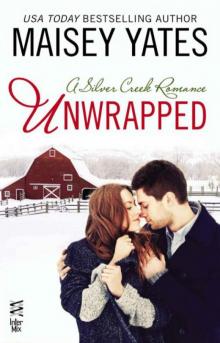 Unwrapped
Unwrapped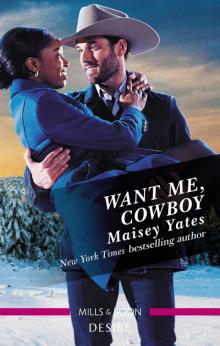 Want Me, Cowboy
Want Me, Cowboy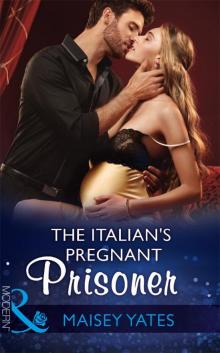 The Italian's Pregnant Prisoner
The Italian's Pregnant Prisoner A Royal World Apart
A Royal World Apart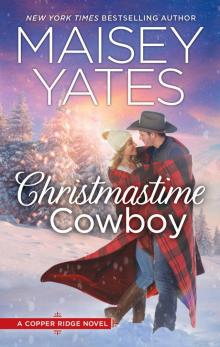 Christmastime Cowboy
Christmastime Cowboy Pretender to the Throne
Pretender to the Throne Rekindled
Rekindled The Queen's New Year Secret
The Queen's New Year Secret Down Home Cowboy
Down Home Cowboy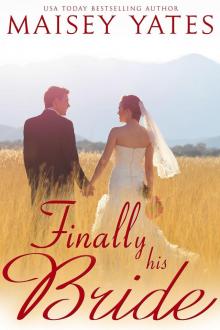 Finally His Bride (Montana Born Brides Series Book 4)
Finally His Bride (Montana Born Brides Series Book 4)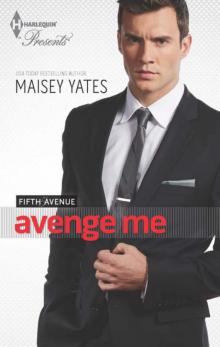 Avenge Me
Avenge Me Crazy, Stupid Sex
Crazy, Stupid Sex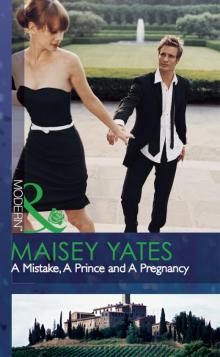 A Mistake, A Prince and A Pregnancy
A Mistake, A Prince and A Pregnancy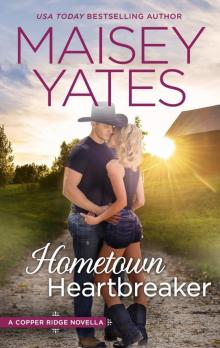 Hometown Heartbreaker
Hometown Heartbreaker A Hunger for the Forbidden
A Hunger for the Forbidden Brokedown Cowboy
Brokedown Cowboy Princess from the Shadows Maisey Yates
Princess from the Shadows Maisey Yates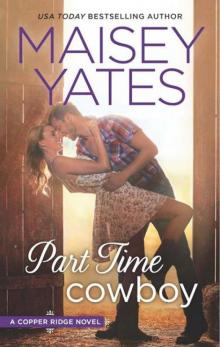 Part Time Cowboy (Copper Ridge Book 1)
Part Time Cowboy (Copper Ridge Book 1)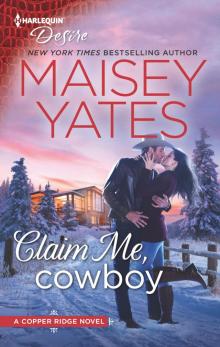 Claim Me, Cowboy
Claim Me, Cowboy Wild Ride Cowboy
Wild Ride Cowboy The Rancher's Baby
The Rancher's Baby The Prince's Captive Virgin
The Prince's Captive Virgin Seduce Me, Cowboy (Mills & Boon Desire) (Copper Ridge)
Seduce Me, Cowboy (Mills & Boon Desire) (Copper Ridge) Untamed Cowboy
Untamed Cowboy Smooth-Talking Cowboy
Smooth-Talking Cowboy The Billionaire's Marriage Deal
The Billionaire's Marriage Deal The Life She Left Behind
The Life She Left Behind The Greek's Nine-Month Redemption
The Greek's Nine-Month Redemption Carides's Forgotten Wife
Carides's Forgotten Wife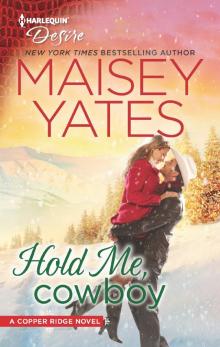 Hold Me, Cowboy
Hold Me, Cowboy The Spaniard's Pregnant Bride
The Spaniard's Pregnant Bride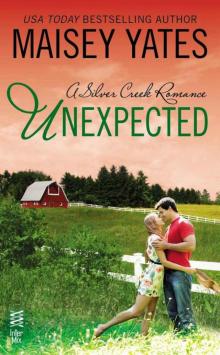 Unexpected (A Silver Creek Romance)
Unexpected (A Silver Creek Romance) The Prince and the PA
The Prince and the PA A Christmas Vow of Seduction
A Christmas Vow of Seduction The Last Di Sione Claims His Prize
The Last Di Sione Claims His Prize Snowed in with the Cowboy
Snowed in with the Cowboy Fifth Avenue Box Set: Take MeAvenge MeScandalize MeExpose Me
Fifth Avenue Box Set: Take MeAvenge MeScandalize MeExpose Me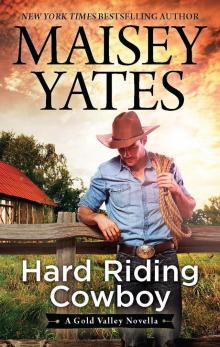 Hard Riding Cowboy
Hard Riding Cowboy Bound to the Warrior King
Bound to the Warrior King Heir to a Dark Inheritance
Heir to a Dark Inheritance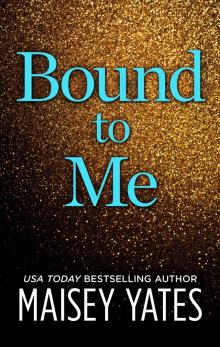 Bound to Me
Bound to Me At His Majesty's Request
At His Majesty's Request The Italian's Pregnant Virgin
The Italian's Pregnant Virgin Slow Burn Cowboy
Slow Burn Cowboy A Game of Vows
A Game of Vows Married for Amari's Heir
Married for Amari's Heir The Argentine's Price
The Argentine's Price Bad News Cowboy
Bad News Cowboy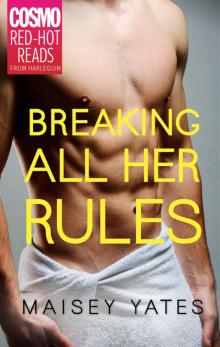 Breaking All Her Rules
Breaking All Her Rules A Copper Ridge Christmas
A Copper Ridge Christmas Hajar's Hidden Legacy
Hajar's Hidden Legacy One Night Charmer
One Night Charmer One Night in Paradise
One Night in Paradise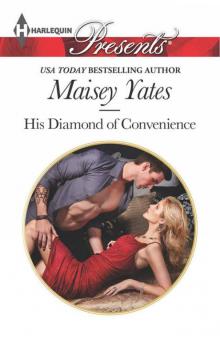 His Diamond of Convenience
His Diamond of Convenience